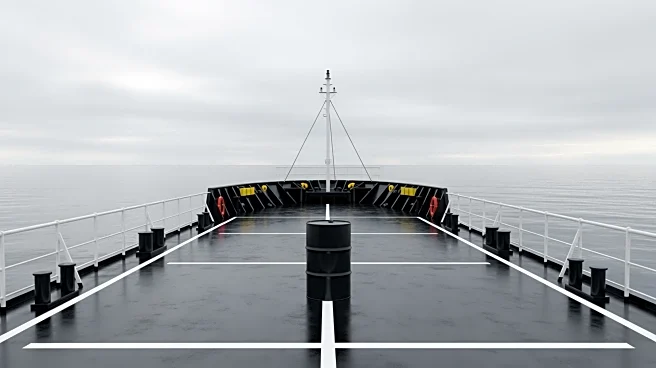Rapid Read • 8 min read
Riyadh's Deputy Emir, Prince Mohammed bin Abdulrahman, recently tested a self-driving vehicle as part of a demonstration of Saudi Arabia's first rollout of autonomous vehicle services in the capital. Accompanied by Transport Minister Saleh Al-Jasser, the Deputy Emir traveled from Roshn Front to King Khalid International Airport, where he inspected ongoing development projects. The visit included a review of the operations control center, which utilizes advanced systems and artificial intelligence to enhance passenger experiences. Prince Mohammed also toured International Terminals 1 and 2, observing expansion efforts aimed at increasing the airport's capacity. The upgrades are expected to accommodate an additional 14 million passengers annually, contributing to a total capacity of 56 million passengers per year.
AD
The developments at King Khalid International Airport are part of a broader strategy to position Riyadh as a major global transport and logistics hub. By enhancing airport capacity and efficiency, Saudi Arabia aims to boost its economic footprint in cargo and logistics operations. The expansion aligns with the Kingdom's Vision 2030, which seeks to diversify the economy and reduce dependence on oil revenues. The airport's upgrades are also linked to the future King Salman International Airport project, anticipated to become the world's largest by 2030. This initiative underscores Saudi Arabia's commitment to becoming a leading international center for travel, transport, tourism, and trade.
The ongoing airport expansions are expected to continue, with the King Salman International Airport project set to significantly increase passenger capacity by 2030. As these projects progress, they will likely attract further investment and development in the region, enhancing Riyadh's status as a key player in global logistics and transportation. The successful implementation of self-driving vehicle services could also pave the way for broader adoption of autonomous technology in Saudi Arabia, potentially influencing transportation policies and infrastructure development.
The introduction of self-driving vehicles and the expansion of airport facilities reflect Saudi Arabia's broader ambitions to integrate advanced technology into its infrastructure. These efforts may have long-term implications for the country's workforce, as automation could reshape job markets and require new skill sets. Additionally, the focus on becoming a global logistics hub may influence regional trade dynamics, potentially altering economic relationships within the Middle East and beyond.
AD
More Stories You Might Enjoy











